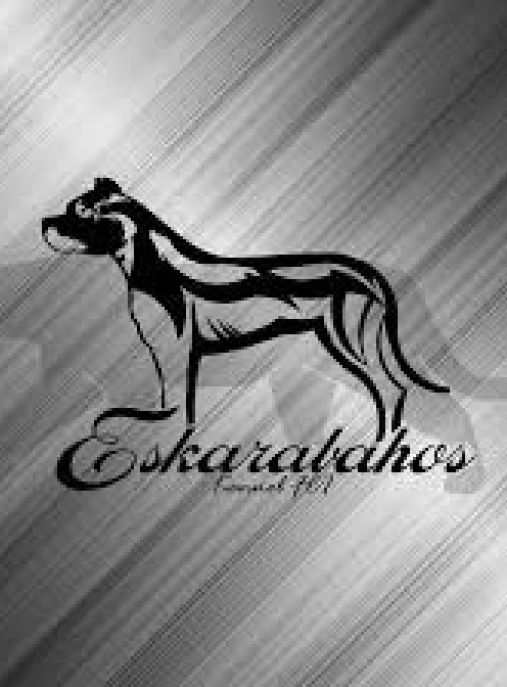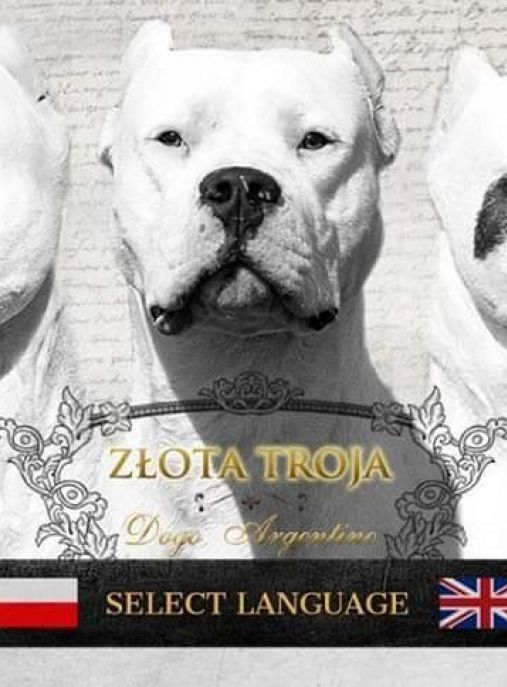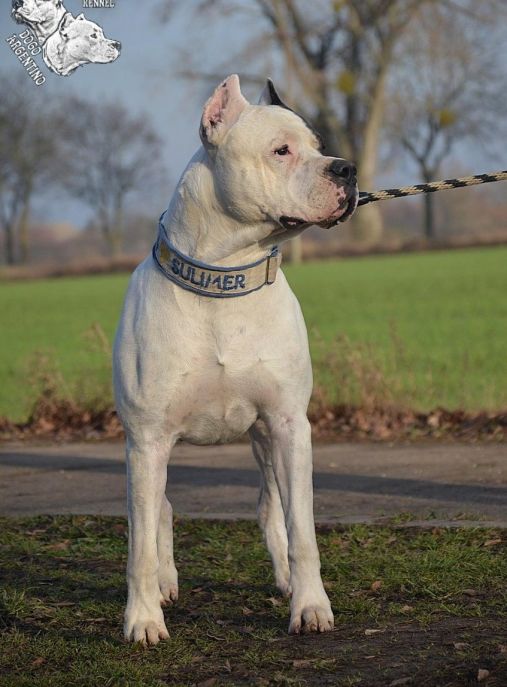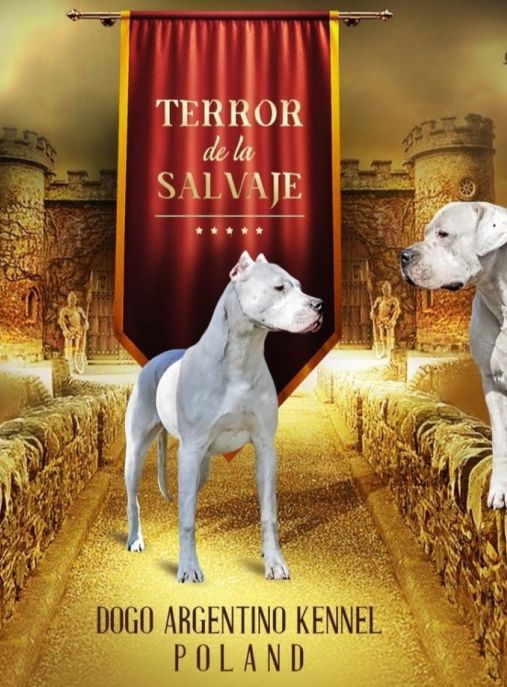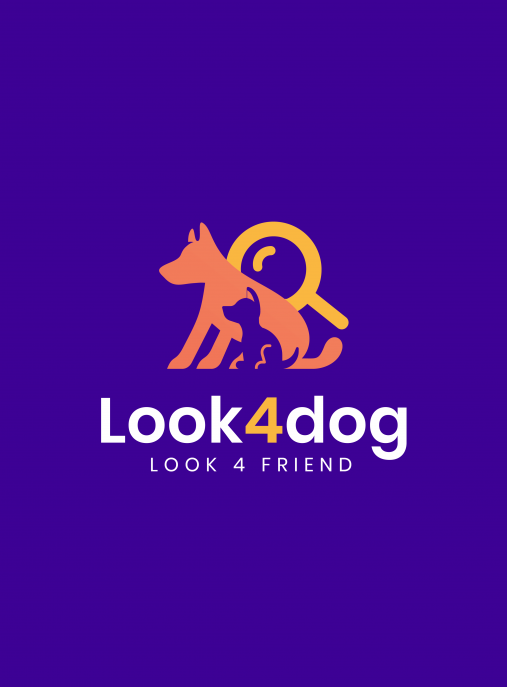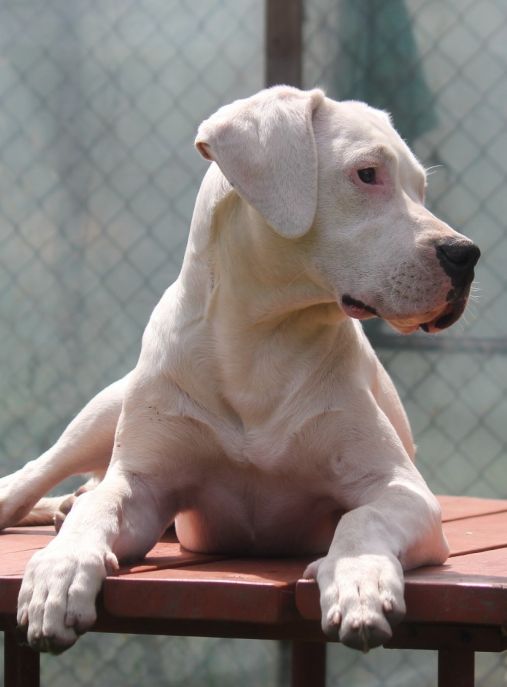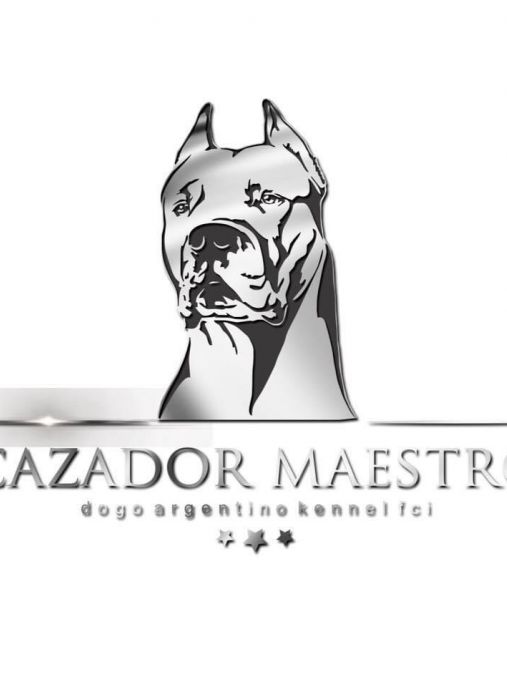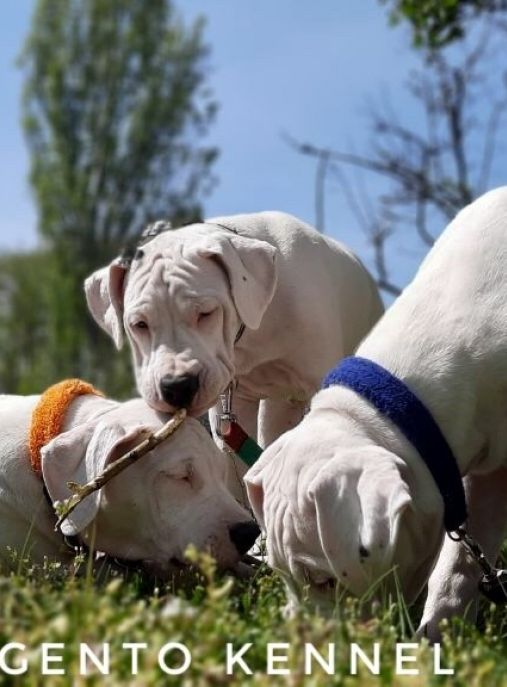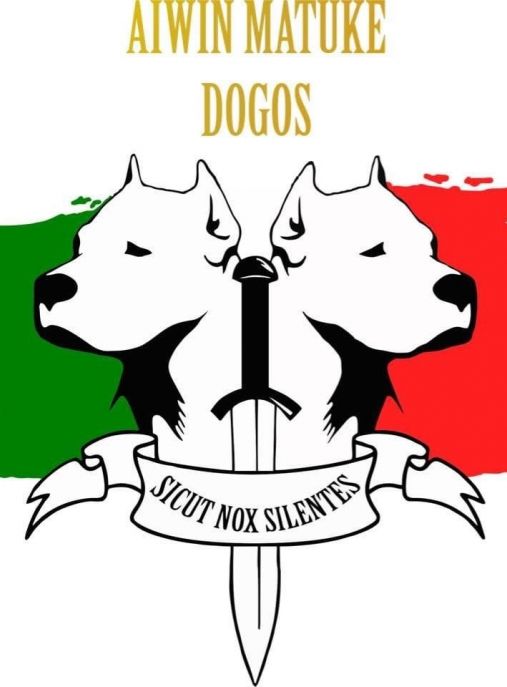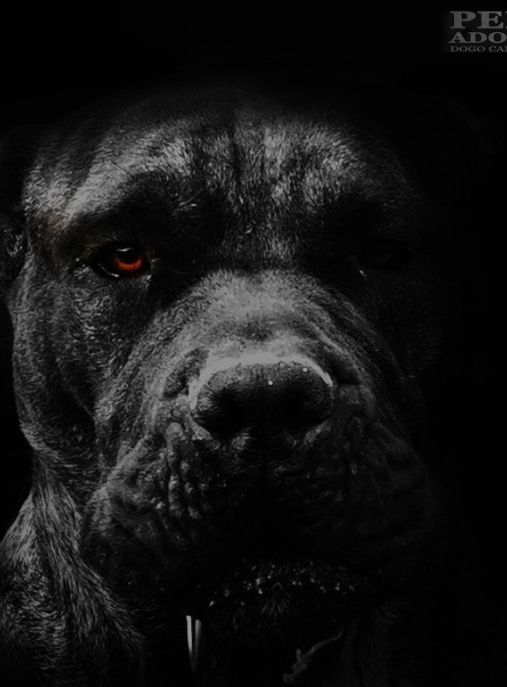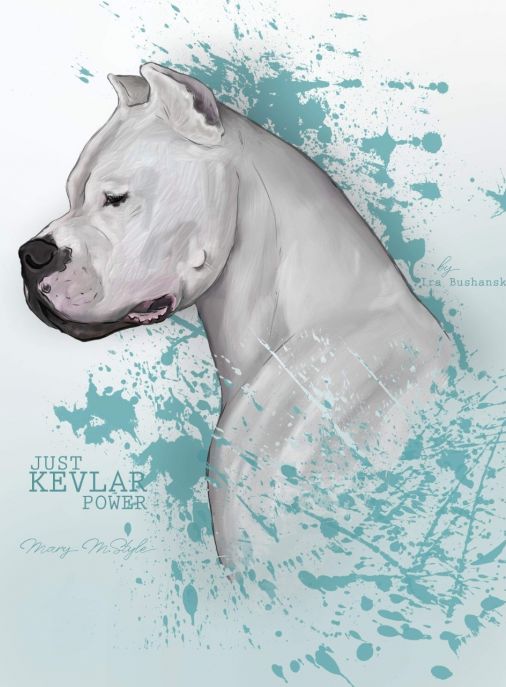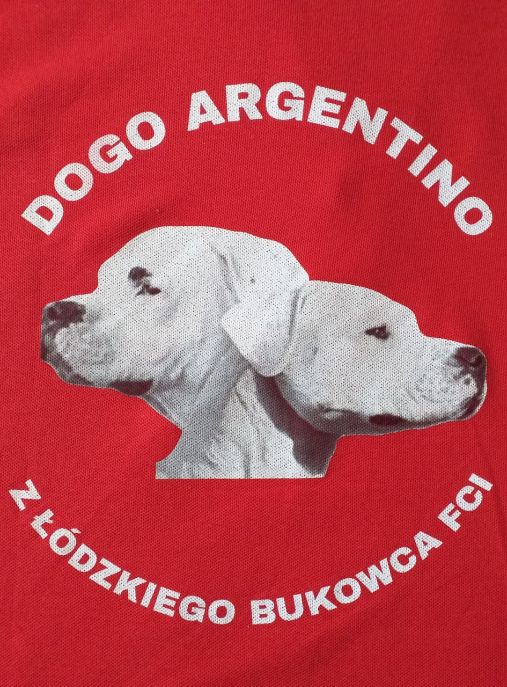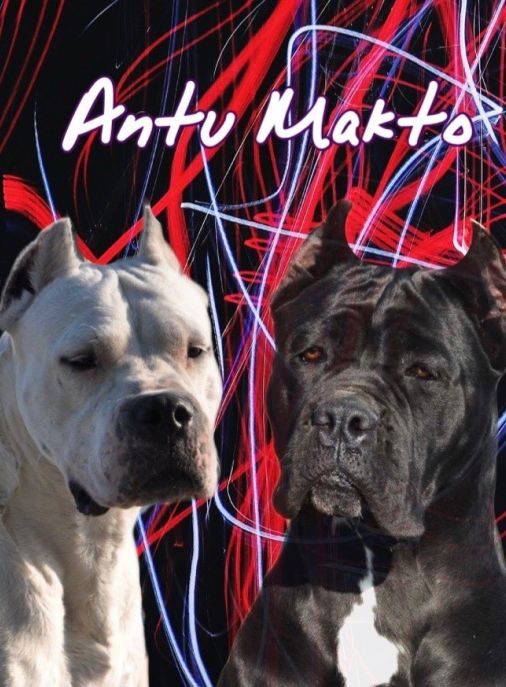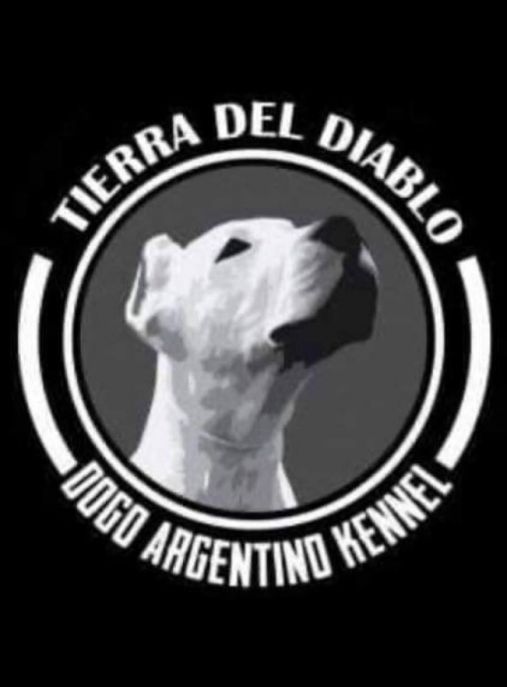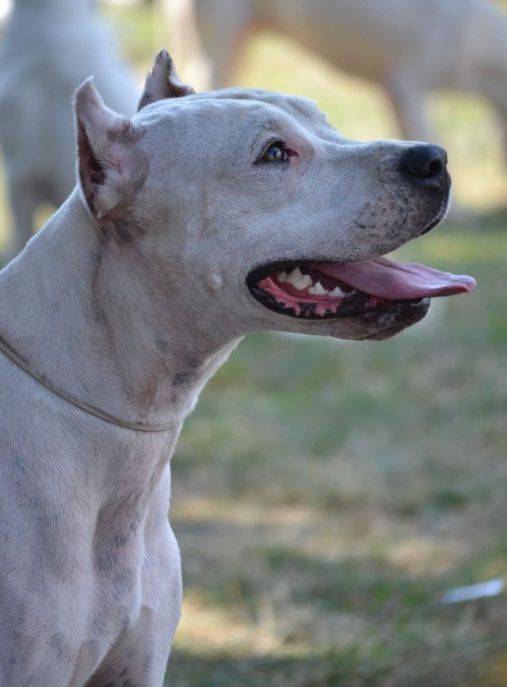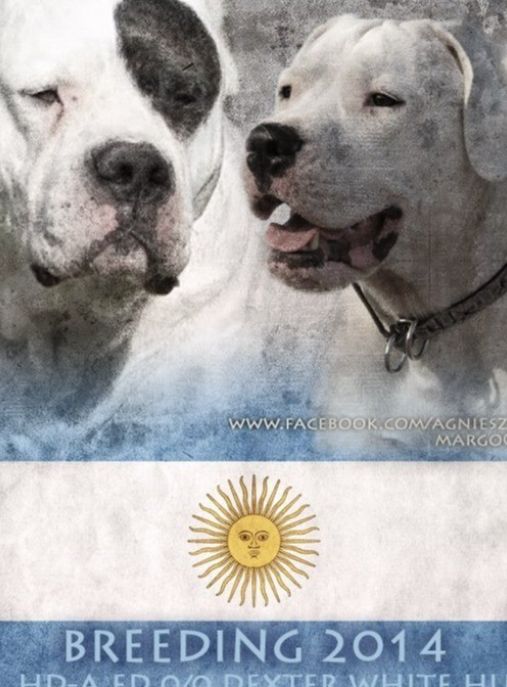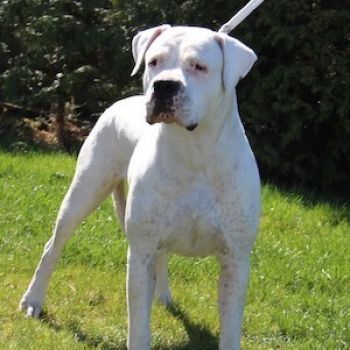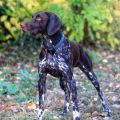The Dogo Argentino, also known as the Argentine Mastiff, is a large and powerful dog breed that originated in Argentina. With its muscular build and strong prey drive, the Dogo Argentino is primarily known for its exceptional hunting abilities. This breed is characterized by its white coat, which is thick and short, and its expressive eyes that exude intelligence and determination.
The history of the Dogo Argentino dates back to the early 20th century when it was developed by Dr. Antonio Nores Martinez, an Argentine physician. Driven by his passion for hunting, Dr. Martinez aimed to create a versatile hunting dog that could excel in various terrains and prey on a wide range of animals. To achieve this, he crossed several breeds, including the Cordoba Fighting Dog, Great Dane, Boxer, Bull Terrier, and Spanish Mastiff.
The Dogo Argentino is classified under Group 2 (Molossoid breeds) Section 2.1 (Mastiffs) by the Fédération Cynologique Internationale (FCI). This classification places the Dogo Argentino alongside other powerful and imposing breeds such as the English Mastiff, Bullmastiff, and Dogue de Bordeaux. It is worth noting that the Dogo Argentino is the only breed from Argentina to be recognized by the FCI.
While the Dogo Argentino was initially bred for hunting purposes, it has also found its place as a loyal and protective family companion. This breed is known for its strong bond with its family members and its natural instinct to protect them. However, due to its size and strength, it is essential for owners to provide proper socialization and training to ensure a well-behaved and balanced dog.
In terms of physical characteristics, the Dogo Argentino is a large and athletic breed. Males typically stand between 24 to 27 inches (61 to 68 cm) at the shoulder, while females are slightly smaller, ranging from 23.5 to 26 inches (60 to 65 cm). The weight of a fully grown Dogo Argentino can vary between 80 to 100 pounds (36 to 45 kg) for males and 70 to 90 pounds (32 to 41 kg) for females.
The average life expectancy of a Dogo Argentino is around 10 to 12 years, which is relatively long for a large breed. However, it is important to note that individual dogs' lifespan can vary depending on various factors such as genetics, diet, exercise, and overall health care.
One interesting fact about the Dogo Argentino is its exceptional sense of smell. This breed possesses a highly developed olfactory system, making it an excellent tracker and search and rescue dog. Additionally, the Dogo Argentino is known for its high energy levels and requires regular exercise to maintain its physical and mental well-being. Daily walks, playtime, and engaging activities are essential to prevent boredom and destructive behavior.
Another notable characteristic of the Dogo Argentino is its strong prey drive. This breed was specifically bred to hunt large game, including wild boar and puma. As a result, it is crucial for owners to provide proper training and supervision to prevent any potential aggression towards other animals. Early socialization and obedience training are essential to ensure that the Dogo Argentino can coexist peacefully with other pets and animals.
In conclusion, the Dogo Argentino is a remarkable breed with a rich history and impressive capabilities. Whether as a hunting companion or a loyal family pet, this breed's strength, loyalty, and intelligence make it a versatile and highly valued dog. However, potential owners should be aware of the breed's exercise and training requirements to ensure a happy and harmonious relationship with their Dogo Argentino.
The Dogo Argentino, also known as the Argentine Mastiff, is a magnificent and powerful breed that possesses a unique character. With their strong and muscular build, these dogs exude confidence and loyalty. Their character is a blend of various traits, making them exceptional companions, protectors, and working dogs.
One of the most prominent characteristics of the Dogo Argentino is their unwavering loyalty. They form strong bonds with their families and are incredibly protective. This loyalty extends to their role as guardians, as they will fearlessly defend their loved ones if they sense any threat. Their protective nature makes them excellent watchdogs, always alert and ready to react.
Despite their imposing appearance, Dogo Argentinos are known for their gentle and affectionate nature. They are incredibly loving towards their family members, including children, and are often described as being great with kids. However, due to their size and strength, it is crucial to supervise interactions between them and young children to prevent accidental injuries.
Intelligence is another notable trait of the Dogo Argentino. They are highly trainable and eager to please their owners. Early socialization and obedience training are essential for these dogs to ensure they grow into well-mannered and well-adjusted adults. Consistency, positive reinforcement, and firm but gentle handling are key when training a Dogo Argentino.
While they are generally friendly towards people, Dogo Argentinos can be wary of strangers. Proper socialization from an early age is crucial to prevent any potential aggression or fear towards unfamiliar individuals. Exposing them to various environments, people, and other animals will help them develop into confident and well-rounded dogs.
Exercise is vital for the physical and mental well-being of Dogo Argentinos. They are an active breed that requires regular exercise to prevent boredom and destructive behavior. Daily walks, runs, or play sessions in a securely fenced yard are necessary to keep them physically and mentally stimulated. Engaging them in activities such as obedience training, agility, or even scent work can also be beneficial.
It is important to note that Dogo Argentinos have a strong prey drive. They were originally bred for hunting large game, such as boars, and this instinct can still be present in some individuals. Therefore, it is crucial to keep them on a leash or within a secure, fenced area to prevent them from chasing after small animals.
Proper socialization with other dogs is essential for Dogo Argentinos. They have a dominant nature and can be prone to dog aggression if not properly socialized. Early exposure to other dogs, controlled interactions, and positive reinforcement can help them develop good social skills and prevent any potential issues.
In conclusion, the Dogo Argentino is a breed with a unique character. They are fiercely loyal, protective, and affectionate towards their families. With proper training, socialization, and exercise, they can become well-rounded and obedient companions. However, it is important to remember that they require responsible ownership and handling due to their size, strength, and potential prey drive.
The Dogo Argentino is a powerful and majestic breed known for its loyalty, intelligence, and protective nature. Caring for a Dogo Argentino requires a combination of physical exercise, mental stimulation, proper nutrition, grooming, and regular veterinary care. Here are some tips on how to care for these magnificent dogs:
1. Exercise: Dogo Argentinos are energetic dogs that require regular exercise to maintain their physical and mental well-being. Aim for at least 60-90 minutes of exercise daily, which can include brisk walks, jogging, or engaging in interactive play sessions. Ensure they have a securely fenced yard to run and play freely.
2. Socialization: Early socialization is crucial for Dogo Argentinos to ensure they grow up to be well-rounded and friendly dogs. Expose them to various people, animals, and environments from a young age. Enroll them in puppy classes or obedience training to help them develop good manners and proper behavior.
3. Mental Stimulation: These intelligent dogs thrive on mental challenges. Provide them with puzzle toys, interactive games, and training sessions to keep their minds engaged. Mental stimulation helps prevent boredom and destructive behavior.
4. Proper Nutrition: Feed your Dogo Argentino a high-quality, balanced diet that meets their nutritional needs. Consult with your veterinarian to determine the appropriate portion sizes and feeding schedule based on their age, weight, and activity level. Avoid overfeeding, as obesity can lead to various health issues.
5. Grooming: Dogo Argentinos have a short, smooth coat that requires minimal grooming. Regular brushing with a soft-bristle brush will help remove loose hair and keep their coat shiny. Check their ears regularly for any signs of infection and clean them as needed. Trim their nails regularly and brush their teeth to maintain good oral hygiene.
6. Veterinary Care: Regular veterinary check-ups are essential for the overall health of your Dogo Argentino. Schedule annual vaccinations, parasite prevention, and dental cleanings. Be vigilant for any signs of illness or discomfort and seek veterinary attention promptly.
7. Positive Reinforcement: Dogo Argentinos respond well to positive reinforcement training methods. Use rewards, such as treats, praise, and playtime, to reinforce good behavior. Avoid harsh training techniques or punishment, as it can lead to fear or aggression.
8. Supervision and Safety: Due to their protective nature, it's important to supervise your Dogo Argentino around unfamiliar people or animals. Properly socialize them to prevent any aggressive behavior. Securely fence your yard to prevent them from wandering off or getting into trouble.
9. Avoid Overexertion: While Dogo Argentinos are athletic dogs, they are prone to overheating due to their short muzzle. Avoid exercising them during the hottest parts of the day, provide plenty of water, and watch for signs of overheating, such as excessive panting or difficulty breathing.
10. Avoid Isolation: Dogo Argentinos are highly social dogs and thrive on human companionship. Avoid leaving them alone for extended periods as it can lead to separation anxiety and destructive behavior. Provide them with plenty of attention, love, and mental stimulation.
Remember, each Dogo Argentino is unique, and their care may vary slightly. Always consult with a reputable breeder, veterinarian, or professional dog trainer for personalized advice and guidance on caring for your specific Dogo Argentino.
The Dogo Argentino, a majestic and powerful breed, is known for its striking and distinctive coat color. The common color of Dogo Argentino dogs is predominantly white. However, this breed often exhibits various markings and patches of color on its coat, adding to its unique and captivating appearance.
The white color of the Dogo Argentino's coat is pure and pristine, resembling the glistening snow-capped peaks of the Andes Mountains. It is a symbol of purity, elegance, and strength. The coat is dense, short, and smooth, providing a sleek and streamlined appearance to these magnificent dogs.
While white is the primary color, Dogo Argentinos may also have markings of black, brindle, or dark brown on their coat. These markings are usually found on the head, ears, or around the eyes, creating a striking contrast against the white background. The black or dark brown patches often resemble a mask, giving the Dogo Argentino an intense and determined expression.
The brindle pattern, characterized by a mixture of dark and light stripes, can also be seen on some Dogo Argentinos. These stripes can vary in intensity, ranging from subtle to bold, and are usually found on the body or legs. The brindle markings add depth and dimension to the coat, enhancing the overall beauty of these dogs.
The coloration of the Dogo Argentino's coat serves a practical purpose as well. The white color helps these dogs blend into their natural surroundings, making them efficient hunters and guardians. It allows them to camouflage in snowy landscapes or open fields, enabling them to approach their prey or intruders unnoticed.
Beyond their physical appearance, the color of the Dogo Argentino's coat reflects their temperament and personality. The white color symbolizes their loyalty, purity, and devotion to their families. It represents their gentle and affectionate nature, making them excellent companions and family pets.
The Dogo Argentino's coat color requires regular grooming to maintain its pristine appearance. The short and smooth coat is relatively easy to care for, requiring occasional brushing to remove loose hair and keep it looking neat. Regular baths are also necessary to keep the white coat clean and free from dirt or stains.
In conclusion, the common color of Dogo Argentino dogs is predominantly white, symbolizing their purity, elegance, and strength. The white coat is often adorned with markings of black, brindle, or dark brown, adding to their unique and captivating appearance. This breed's coat color not only enhances their physical beauty but also reflects their loyal and affectionate nature.
The Dogo Argentino, a powerful and athletic breed, is known for its loyalty, intelligence, and protective nature. When it comes to their health, Dogo Argentinos are generally robust and resilient. However, like any other breed, they are prone to certain health issues that owners should be aware of. Proper care and regular veterinary check-ups are essential to ensure the well-being of these magnificent dogs.
One of the most common health concerns in Dogo Argentinos is hip dysplasia. This condition occurs when the hip joint doesn't develop properly, leading to pain, lameness, and arthritis. Responsible breeders will perform hip evaluations on their breeding dogs to minimize the risk of passing on this genetic condition. Regular exercise, a balanced diet, and maintaining a healthy weight can also help reduce the likelihood of hip dysplasia.
Another health issue that Dogo Argentinos may face is deafness. This breed is known to have a higher incidence of congenital deafness compared to other breeds. It is crucial to have puppies' hearing tested at an early age to identify any hearing impairments. While deafness cannot be cured, it can be managed through training techniques that rely on visual cues and vibrations.
Dogo Argentinos are also prone to allergies, which can manifest as skin irritations, itching, and ear infections. These allergies can be triggered by food, environmental factors, or even certain grooming products. Identifying and eliminating the allergen from the dog's environment is crucial in managing these allergies. Regular bathing with hypoallergenic shampoos, a balanced diet, and avoiding exposure to potential allergens can help alleviate symptoms.
Additionally, Dogo Argentinos may be susceptible to certain eye conditions such as cataracts, progressive retinal atrophy (PRA), and entropion. Regular eye examinations by a veterinarian can help detect these conditions early on, allowing for appropriate treatment or management options.
To ensure the overall health and well-being of a Dogo Argentino, it is essential to provide them with regular exercise. These dogs are energetic and require daily physical activity to prevent obesity and maintain muscle tone. Mental stimulation through obedience training, puzzle toys, and interactive games is also crucial to prevent boredom and destructive behaviors.
Proper nutrition is vital for the health of Dogo Argentinos. Feeding them a high-quality, balanced diet that meets their specific nutritional needs is essential. Consultation with a veterinarian can help determine the appropriate diet for your dog's age, size, and activity level.
Regular veterinary check-ups are crucial for early detection and prevention of potential health issues. Vaccinations, parasite prevention, dental care, and routine blood work are all part of maintaining a Dogo Argentino's overall health.
In conclusion, while Dogo Argentinos are generally healthy dogs, they are prone to certain health issues such as hip dysplasia, deafness, allergies, and eye conditions. Responsible breeding practices, regular exercise, a balanced diet, and routine veterinary care are essential in ensuring the well-being of these magnificent dogs. With proper care and attention, Dogo Argentinos can live long, happy, and healthy lives.
The Dogo Argentino is a large and powerful breed of dog that requires a well-balanced and nutritious diet to maintain optimal health and vitality. Proper nutrition plays a crucial role in their overall well-being, growth, and development. In this text, we will provide an extensive description of the nutrition requirements for Dogo Argentino dogs, along with advice on what and how to feed them, as well as things to avoid.
Protein is an essential component of a Dogo Argentino's diet, as it helps support muscle development and repair. High-quality animal-based proteins should make up the majority of their diet. Lean meats like chicken, turkey, beef, and fish are excellent sources of protein. It is important to ensure that the meat is cooked thoroughly to eliminate any potential bacteria or parasites that may be harmful to your dog.
Carbohydrates are another important part of their diet, providing energy for their active lifestyle. Whole grains like brown rice, oats, and quinoa are excellent sources of complex carbohydrates. These grains also provide fiber, which aids in digestion and helps maintain a healthy weight. Avoid feeding your Dogo Argentino excessive amounts of simple carbohydrates like white rice or refined grains, as they can lead to weight gain and other health issues.
Fats are an essential part of their diet, providing energy and aiding in the absorption of fat-soluble vitamins. Healthy fats can be obtained from sources like fish oil, flaxseed oil, and chicken fat. These fats also contribute to a healthy coat and skin. However, it is important to feed fats in moderation, as excessive amounts can lead to obesity and other health problems.
Vitamins and minerals are crucial for the overall health and well-being of your Dogo Argentino. A balanced diet that includes a variety of fruits and vegetables can provide these essential nutrients. Some fruits and vegetables that are safe for dogs include apples, carrots, sweet potatoes, and blueberries. However, it is important to avoid feeding them toxic foods like grapes, raisins, onions, and garlic, as they can be harmful to their health.
Feeding your Dogo Argentino should be done in accordance with their age, weight, and activity level. Puppies require a diet that is higher in calories and nutrients to support their growth. As they mature, their calorie intake should be adjusted to prevent excessive weight gain. Adult Dogo Argentinos typically require two meals a day, while senior dogs may benefit from smaller, more frequent meals to aid digestion.
Portion control is essential to prevent overfeeding and obesity. It is recommended to consult with a veterinarian to determine the appropriate portion size for your Dogo Argentino based on their specific needs. Additionally, always provide fresh and clean water for your dog to stay hydrated throughout the day.
Avoid feeding your Dogo Argentino table scraps, as they can be high in fat, salt, and other harmful ingredients. Human foods like chocolate, caffeine, alcohol, and foods containing artificial sweeteners should never be given to dogs, as they can be toxic and potentially fatal.
In conclusion, providing a well-balanced and nutritious diet is essential for the health and well-being of your Dogo Argentino. A diet rich in high-quality proteins, complex carbohydrates, healthy fats, vitamins, and minerals will help support their growth, maintain a healthy weight, and promote overall vitality. Remember to consult with a veterinarian for personalized advice and to ensure that your dog's specific nutritional needs are met.
